Hand Washing 101: The Why, How & When
- Category: COVID-19, Health & Wellness, Safety
- Posted On:

How many times were you asked, “Did you wash your hands?” when you were a child? Likely often. That’s because washing your hands regularly not only removes germs but also prevents illness in yourself and those around you.
Now think about all the things you’ve touched in a single day: your phone, loose change, using the restroom, and more. Maybe you even blew your nose or touched a contaminated surface and didn’t wash your hands after. It’s important to wash your hands because it helps keep you healthy and prevents the spread of potentially dangerous infections, including the COVID-19 virus and variants. You can spread germs with unwashed hands in many ways, so it’s important to know how to wash your hands properly.
How to Wash Your Hands Properly
Clean hands prevent germs from spreading quite effectively. To wash your hands properly, wet your hands with clean running water (preferably warm) and use soap to work into a lather. Make sure to lather the backs of your hands, in addition to your palms, and between your fingers. Be sure to clean under your fingernails and around your wrists, too. Wash your hands for at least 20 seconds and then rinse. Dry your hands using a clean towel or use a hand dryer.
While washing your hands with soap and water is the most effective way you can properly maintain hand hygiene, you can also use an alcohol-based hand sanitizer if you can’t make it to a sink with soap and water. Keep in mind that hand sanitizers are not as effective at removing dirt or grease and do not get rid of all types of germs.
To watch a handwashing video utilizing the World Health Organization (WHO) technique, click here.
When to Wash Your Hands
The CDC Recommends Handwashing:
- Before, during, and after preparing food
- Before and after eating food
- Before and after treating a cut or wound
- After using the restroom
- After changing diapers
- After touching animals or animal waste
- After touching garbage
- After blowing your nose
- After touching a frequently touched surface like doorknobs, gas pumps, shopping carts, etc.
To learn more about the why, how, and proper hand hygiene, visit the CDC website.
About Florida Health Care Plans
Florida Health Care Plans serves our community with an extensive list of local health care providers in Flagler, Volusia, Seminole, Brevard, and St. Johns Counties. These facilities are designed with convenience and comfort in mind, whether you’re visiting your family doctor, getting an X-ray, or utilizing our cost-effective, members only pharmacies.

 Event Calendar
Event Calendar
.png) Find a Gym
Find a Gym
 ACA Members Pay Online
ACA Members Pay Online
 Articles & Blogs
Articles & Blogs